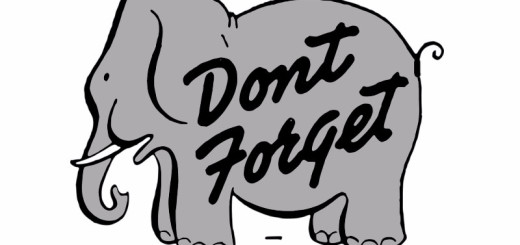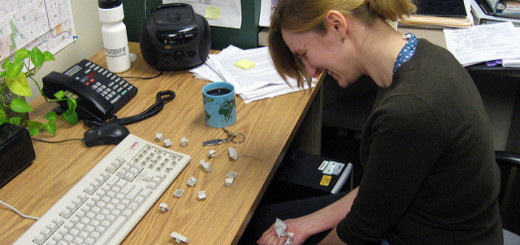Habits of Effective People
As a full time psychologist I have had to develop tools to help clients to gain autonomy in their lives. In this presentation I talk about one of the important ones I share with my clients in my sessions. This presentation is about one of the principles Stephen Covey writes about in his book: “ The 7 Habits of Highly Effective People”. I hope you will enjoy and benefit from them.
Our habits have strong effects on our life because they are consistent and also unconscious models of behavior. They shape our character day by day and determine how effective we are. Here is how Gandhi expresses how habits are formed and how they will in turn form our destiny:
“Your beliefs become your thoughts. Your thoughts become your words. Your words become your actions. Your actions become your habits. Your habits become your values. Your values become your destiny.” Mahatma Gandhi

BEING PROACTIVE
The foremost habit of effective people is BEING PROACTIVE. So, what does it mean?
We, as the human species, have the ability to think about our own mental processes; which is the very skill that made the development of civilization possible. The current social paradigm is based on our conditioning and asserts that we are shaped by the circumstances. Yet our self-consciousness allows us to view ourselves from an external perspective, so we can decide and allow our personal paradigm, that is, our principles and values, to become different from the social paradigm.
We start life as a baby depending on our caretakers. One of the important steps in our growth process is developing the ability to think and act separately from our parents, family and culture and dissociating from them. After this point, maturing takes place through the realization of mutual dependence.
Alden Nowlan, a 20th century Canadian poet and novelist, said some insightful words:
“The day the child realizes that all adults are imperfect, he becomes an adolescent; the day he forgives them, he becomes an adult; the day he forgives himself, he becomes wise.”
In what stage of your development do you think you are?
Can you take responsibility and move from reactivity to choice?
Being proactive is to choose to stop viewing negative past experiences, unfavorable situations and wrongdoings as obstacles. Our nature evolves dynamically through the interaction of our genetic traits with psychological and environmental factors. At first, we seem to be conditioned to react in a certain way to a given stimulus. When we let, through a conscious decision or through neglect, our conditioning and the circumstances control us, we become reactive and are affected excessively by our social surroundings.
When we grasp that we have the freedom to choose, it paves the way for us to be proactive and we accept our responsibility in the development of the events in our life.
Do you focus on your sphere of influence?
We can divide the issues on which we focus under two categories: Those that we can influence; and those that we worry about but cannot influence. Most of us devote much time and energy to this second category, gradually lessening the resources that we can allocate to the issues we can change.
On the other hand, when we are proactive, we don’t waste much energy on issues and circumstances which remain out of our control, we keep our focus on those we can change. This will gradually widen our sphere of influence while decreasing the number of matters that we worry about but cannot change.
Do you act as if change starts from you?
The issues we are faced with may be related to our own actions or to others’ actions, or they may be such that there is nothing you can do to change them. When we think the problem is external, our sphere of influence is narrowed, we lose our elbow room and our health while waiting for change to start from outside. This gives way to external factors to have controlling power over us. We adopt a reactive attitude as we believe we can only change after the external factors have changed.
To the contrary, when we are proactive, we initiate change starting from ourselves, thus establishing an environment for the external problem to change in the desired direction. As we ask ourselves such questions as “What can I do differently?” or “How can I be different?”, and revise our habits and methods of influence, we feel we are not powerless against problems that are out of our control. All of these lie within our sphere of influence.
Do you act on your principles?
In any situation, we are free to react in any way we wish, yet as we do that, we accept in advance the consequences of our actions. To bring our actions from the level of reactivity to that of proactivity, we can resort to our principles. For instance, “If I’ve adopted the principle ‘I am a person who loves and cares for her spouse,’ I’ll ask myself whether any words or actions that I’m about to use are in line with this principle before speaking or acting, no matter how bad the problems between us have grown. When we lift one end of a stick, we also lift the other.”
Do you learn from your mistakes?
Feeling guilty for our mistakes, getting angry, blaming others, and trying to justify ourselves are reactive behavior. When we are proactive we own our mistakes promptly and are happy to make up for and learn from them, without feeling offended and humiliated. This is a very simple attitude that transforms failure into success. When we can see that each mistake we make is a gift from life to make it easier for us to learn, we become stronger in the face of life and difficulties.
Do you keep your promises?
We have the ability to make promises and keep them within our sphere of influence. When we keep our word, even in trivial matters, we start to exhibit inner integrity, which increases our sense of self-control as well as our boldness and strength to take up more responsibility for our life.
To summarize, here are the steps you can take to develop proactive behavior, that Stephen Covey sees as one of the habits of effective people:
- Show the courage and maturity to be different
- Take responsibility and move from reactivity to choice
- Focus on your sphere of influence
- Adopt the notion that change starts from you
- Act on your principles
- Learn from your mistakes
- Keep your promises
Adopt these behaviours and your life will change for the better but, for some, doing so isn’t easy. If you feel you need help in putting these ideas into practice contact me via terapi @ irembray.com




